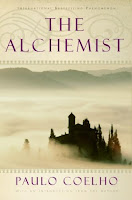There seems to be a proliferation of retired and semi-retired bored men with too much money and free time on their hands for our good, not to mention theirs.
I envision you all sitting around a pub table, pill boxes spread out beside your beers, wondering among yourselves what to do until bedtime.
“Oh,” says one of you with a light bulb going on behind his eyes, finger raised. “What about we go out and find some bad science to support?”
May I suggest, wrong thought?
How about considering this list of leisure activities instead?
What about
- Golf? Bored men should always occupy their time with golf.
- Chess? This stimulates brain activity, something, apparently, a number of you need right now to make effective, genuinely socially conscious decisions.
- Gardening? I am a firm believer that growing your own vegetables makes for a good relationship with the earth you would otherwise be messing up with your support of bad science.
- Watching television? This will numb your brain into nothingness and provide a modicum of protection against your boredom - our protection against your boredom.
- Playing endless games on your favourite social network? Ditto above reason.
- Long cruises on notorious shipping lines? With a bit of luck you’ll come back a hero and spend your over-abundance of free time doing media interviews on this rather than on how you next plan to mess up our lives by supporting bad science.
- Buying lottery tickets? Wealth is addictive and so this is a perfect, and relatively harmless, way of investing in renewable capital.
- Shopping till you drop? Think of all the things you could buy at your friends’ stores, and how, by doing so, you boost their wealth and find a way of spending your own - and doing something to address that boredom of yours at the same time.
- Doing what other men of your age but not of your income do? Find a hobby more suited to your skills, like making string balls or spending the year planning a nice light festival in your garden with all those imported LED lights which can be seen from space and defy even the remotest notion of energy conservancy.
Try starting with something on this list, but if nothing appeals to you, I have many, many more ideas and you are welcome to contact me for additional suggestions.
Just, please, whatever you decide upon, concentrate your boredom on something that does not cost the rest of us in income, property and lives.
Source: Inspiration for this post came from this article in The Guardian.



